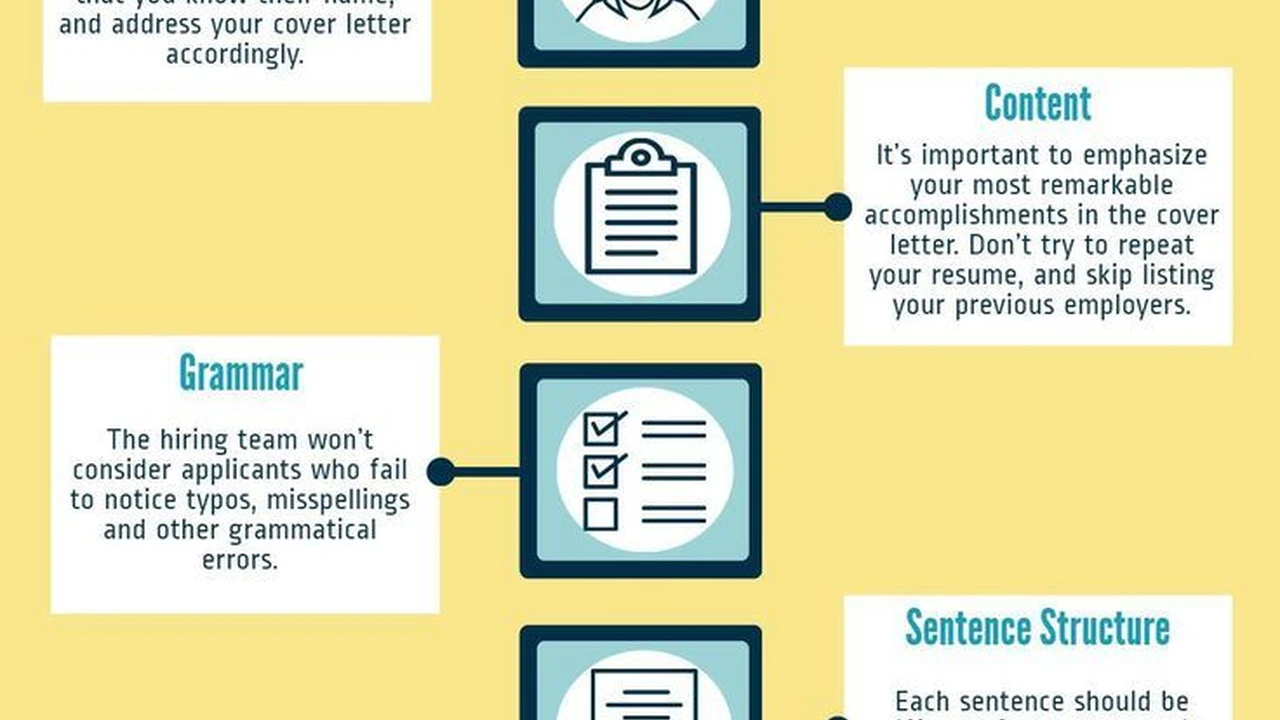5 Ways to Stay Relevant in a Changing Job Market
Discover five proactive ways to ensure your skills remain relevant in an evolving professional landscape.

5 Ways to Stay Relevant in a Changing Job Market
Discover five proactive ways to ensure your skills remain relevant in an evolving professional landscape.Understanding the Evolving Job Market Landscape
The job market today is a dynamic beast, constantly shifting and evolving. What was a highly sought-after skill yesterday might be automated or outsourced tomorrow. This isn't a doomsday prophecy; it's a reality that savvy professionals embrace. Staying relevant isn't about predicting the future with a crystal ball; it's about continuous adaptation, learning, and strategic positioning. Think about the rapid rise of AI, the increasing demand for data literacy, or the ever-present need for strong soft skills. These aren't fads; they're fundamental shifts. Ignoring them is like trying to navigate a modern city with only a paper map from the 1990s. You might get somewhere, eventually, but it won't be efficient or effective. So, how do you ensure you're not just surviving but thriving in this ever-changing environment? Let's dive into five proactive strategies.
Strategy 1 Embrace Lifelong Learning and Skill Acquisition
This isn't just a buzzword; it's a necessity. The idea that you finish your education and then you're 'done' with learning is a relic of the past. In today's world, learning is a continuous journey. It's about actively seeking out new knowledge, mastering new tools, and understanding emerging trends. This doesn't mean you need to go back to university for another four-year degree every few years. Lifelong learning can take many forms, from online courses and certifications to workshops, industry conferences, and even self-study through books and articles.
Online Learning Platforms for Continuous Skill Development
Online learning platforms have revolutionized how we acquire new skills. They offer flexibility, affordability, and access to a vast array of courses taught by industry experts. Here are a few top recommendations:
- Coursera: This platform partners with universities and companies to offer courses, specializations, and degrees. You can find everything from 'Google IT Support Professional Certificate' to 'Applied Data Science with Python.' Many courses offer a free audit option, and paid certificates can range from $39 to $79 per month for specializations. For example, the 'IBM Data Science Professional Certificate' is highly regarded and can significantly boost your data literacy.
- Udemy: Known for its vast library of user-generated content, Udemy offers courses on almost any topic imaginable, often at very competitive prices (frequently on sale for $10-$20). While quality can vary, you can find hidden gems. Look for courses with high ratings and many reviews. For instance, 'The Complete JavaScript Course 2024: From Zero to Expert!' is a popular choice for aspiring web developers.
- edX: Similar to Coursera, edX offers university-level courses from institutions like MIT and Harvard. It's a great option for more academic or foundational learning. Many courses are free to audit, with verified certificates costing around $50-$300. Their 'Professional Certificate in Data Science' from Harvard University is a robust program for those serious about data.
- LinkedIn Learning: Included with a LinkedIn Premium subscription (around $29.99/month, often with a free trial), this platform offers a wide range of business, creative, and tech courses. It's particularly strong for soft skills and professional development. Their 'Learning Python' or 'Excel Essential Training' courses are excellent for practical application.
- Pluralsight: Geared more towards tech professionals, Pluralsight offers in-depth courses on software development, IT ops, data, and cybersecurity. It's a subscription-based model, typically around $29/month or $299/year, and provides skill assessments to identify learning gaps. Their 'Azure Fundamentals' or 'AWS Certified Solutions Architect' paths are invaluable for cloud professionals.
When choosing a platform or course, consider your learning style, career goals, and budget. Always check reviews and course outlines to ensure alignment with your needs.
Strategy 2 Cultivate a Strong Professional Network
The Power of Connections in Career Longevity
Your network isn't just about finding your next job; it's about staying informed, gaining insights, and identifying emerging opportunities. A strong professional network acts as your early warning system for industry shifts and a source of invaluable advice. It's not just about who you know, but who knows you, and what they know about you. Building a network is an ongoing process, not a one-time event.
Networking Tools and Platforms for Professional Growth
While in-person events are great, digital platforms have made networking more accessible than ever. Here are some tools and approaches:
- LinkedIn: This is the undisputed king of professional networking. Beyond connecting with colleagues, actively engage in relevant industry groups, comment on posts, and share insightful articles. Use the 'People You May Know' feature, but also proactively search for professionals in your target industries or roles. Don't just send a generic connection request; personalize it.
- Industry-Specific Online Forums and Communities: Many industries have dedicated online forums, Slack channels, or Discord servers where professionals discuss trends, challenges, and opportunities. For example, if you're in marketing, look for digital marketing communities. If you're a developer, GitHub or Stack Overflow can be great for connecting and learning.
- Meetup.com: While often associated with social gatherings, Meetup hosts numerous professional groups and events, both online and in-person. Search for groups related to your industry, skills, or career interests in your local area or online.
- Professional Associations: Joining professional associations (e.g., PMI for project managers, IEEE for engineers) often provides access to exclusive networking events, conferences, and member directories. Annual memberships can range from $50 to $500, but the value in terms of connections and resources can be immense.
- Virtual Conferences and Webinars: The pandemic accelerated the shift to virtual events. These are fantastic opportunities to learn from thought leaders and network with attendees from around the globe, often at a lower cost than in-person events. Many platforms like Zoom Events or Hopin facilitate networking during these events.
Remember, networking is a two-way street. Offer help, share knowledge, and be genuinely interested in others' work. The stronger your network, the more resilient you'll be to market changes.
Strategy 3 Develop Adaptability and Resilience
The Mindset for Navigating Career Changes
The ability to adapt to new situations and bounce back from setbacks is paramount. A rigid mindset will leave you behind. Instead, cultivate a growth mindset – the belief that your abilities can be developed through dedication and hard work. This means viewing challenges as opportunities for learning, rather than insurmountable obstacles. Resilience isn't about avoiding failure; it's about how you respond to it.
Practices for Enhancing Adaptability and Resilience
- Embrace Change: Instead of resisting change, try to understand its implications and how you can leverage it. Read industry reports, follow thought leaders, and engage in discussions about future trends.
- Seek Feedback: Regularly ask for constructive feedback from peers, mentors, and managers. This helps you identify blind spots and areas for improvement, fostering a continuous learning loop.
- Practice Problem-Solving: Actively seek out complex problems and work to solve them. This builds your critical thinking skills and confidence in tackling new challenges.
- Maintain a Positive Outlook: While easier said than done, focusing on solutions rather than problems can significantly impact your ability to adapt. Mindfulness and stress management techniques can help here.
- Learn from Failure: Don't let setbacks define you. Analyze what went wrong, extract lessons learned, and apply them moving forward. Every 'failure' is a data point for future success.
Strategy 4 Master Essential Soft Skills
The Underrated Importance of Human Skills in Automation Age
While technical skills are crucial, soft skills are becoming increasingly vital, especially as automation takes over routine tasks. These are the 'human' skills that machines can't easily replicate: communication, collaboration, critical thinking, creativity, emotional intelligence, and leadership. Employers are actively seeking candidates who can not only perform tasks but also work effectively in teams, solve complex problems, and navigate interpersonal dynamics. These skills are transferable across industries and roles, making them incredibly valuable for long-term relevance.
Training Resources for Improving Soft Skills
Improving soft skills requires practice and self-awareness. Here are some ways to develop them:
- Communication: Take public speaking courses (e.g., Toastmasters International, often with local chapters and affordable membership fees), practice active listening, and seek opportunities to present your ideas. Online courses on platforms like Coursera or LinkedIn Learning offer modules on 'Effective Business Communication.'
- Collaboration: Volunteer for cross-functional projects at work, participate in group activities, and actively contribute to team discussions. Learn to give and receive constructive feedback.
- Critical Thinking: Engage in debates, analyze complex case studies, and question assumptions. Courses on 'Critical Thinking and Problem Solving' are widely available online.
- Emotional Intelligence: Read books on EQ (e.g., Daniel Goleman's 'Emotional Intelligence'), practice self-awareness, and observe how others manage their emotions. LinkedIn Learning has excellent courses on 'Developing Your Emotional Intelligence.'
- Leadership: Seek leadership roles in volunteer organizations, mentor junior colleagues, and study different leadership styles. Books like 'Dare to Lead' by Brené Brown offer valuable insights.
Many of these skills are best developed through real-world application and reflection. Actively seek opportunities to practice them in your daily work and personal life.
Strategy 5 Diversify Your Skillset and Experience
Building a T-Shaped Professional Profile
Think of your skillset as a 'T' shape. The vertical bar represents deep expertise in one or two specific areas (your core technical skills). The horizontal bar represents a broad understanding of related fields and a range of complementary skills. This 'T-shaped' profile makes you highly adaptable. If demand for your deep expertise wanes, your broad knowledge allows you to pivot or integrate new skills more easily. It also makes you a more valuable team member, as you can understand and contribute to different aspects of a project.
Strategies for Skill Diversification
- Cross-Training: If possible, ask your employer for opportunities to cross-train in different departments or on projects outside your immediate scope. This exposes you to new processes and challenges.
- Side Projects: Start a side project or a small side hustle that allows you to experiment with new technologies or skills without the pressure of your main job. This could be building a simple website, learning a new programming language, or even dabbling in graphic design.
- Volunteer Work: Volunteer for organizations that allow you to use or develop skills different from your day job. For example, if you're a software engineer, volunteer to help a non-profit with their marketing strategy.
- Read Widely: Don't just read industry-specific publications. Explore books and articles on economics, psychology, philosophy, and other fields. This broadens your perspective and fosters interdisciplinary thinking.
- Attend Workshops and Bootcamps: These intensive programs can quickly equip you with new, in-demand skills. While some can be expensive (e.g., coding bootcamps ranging from $5,000 to $20,000), they offer a fast track to new competencies. Look for reputable providers and check their job placement rates.
By proactively diversifying your skills, you're not just preparing for the next job; you're building a career that can withstand the inevitable shifts and turns of the modern professional landscape. It's about creating a robust and adaptable professional identity that remains valuable no matter what the future holds.
:max_bytes(150000):strip_icc()/277019-baked-pork-chops-with-cream-of-mushroom-soup-DDMFS-beauty-4x3-BG-7505-5762b731cf30447d9cbbbbbf387beafa.jpg)






